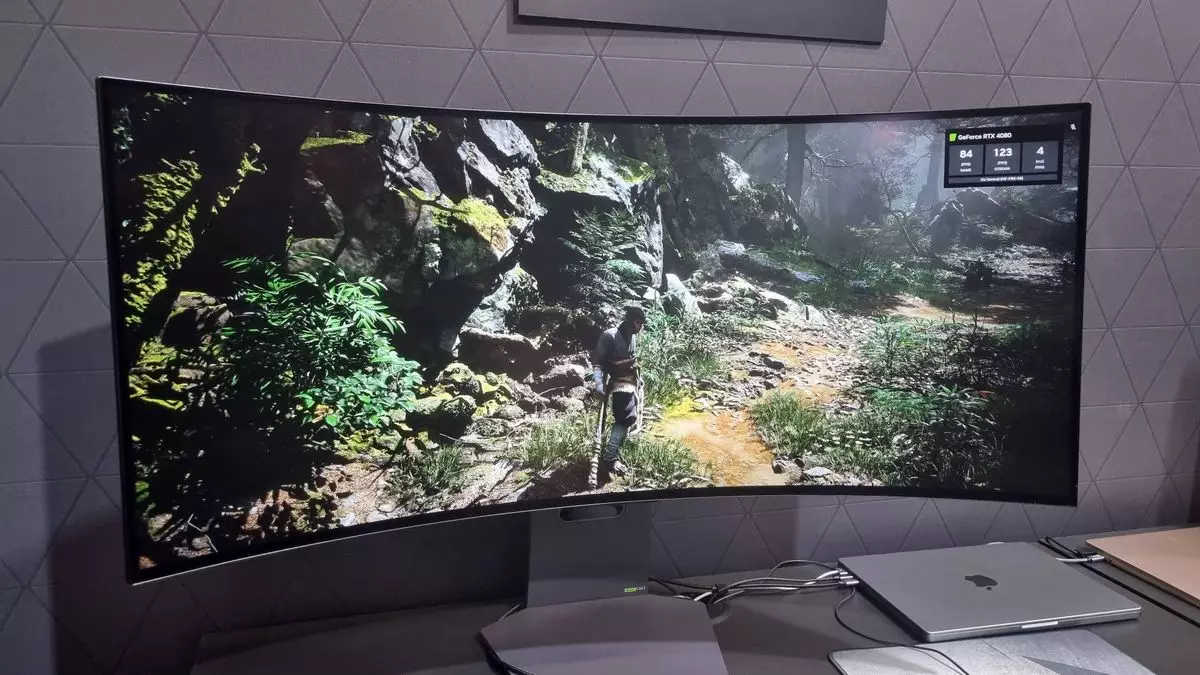The landscape of gaming is constantly evolving, with new technologies and trends reshaping the way we experience our favorite games. The traditional approach of running games on powerful hardware is being challenged by the rise of cloud gaming services. As a tech enthusiast who has been hesitant to embrace this new trend, watching Black Myth: Wukong being streamed via a GeForce Now-equipped MacBook at Gamescom 2024 opened my eyes to the potential benefits of cloud gaming.
As someone who values the tangible experience of running games on a high-end PC, witnessing a demanding game like Black Myth: Wukong running seamlessly on a MacBook through cloud streaming made me question my long-held principles. The experience of playing the game at 80 fps with minimal latency on a standard-issue laptop highlighted the convenience and efficiency of cloud gaming services. Despite my initial reservations, I couldn’t help but wonder if I had been missing out on a more streamlined gaming experience.
The sheer performance and visual quality delivered by GeForce Now’s cloud streaming service showcased the potential of offloading gaming hardware requirements to external servers. The ability to access RTX-equivalent performance through a subscription-based model, such as the Ultimate account at $20 a month, offers a compelling alternative to investing in expensive PC components. The seamless gameplay experience, coupled with real-time data overlay, blurs the line between local hardware and cloud-based gaming.
While the convenience of cloud gaming is undeniable, it comes with its own set of challenges and considerations. Factors such as internet speed, stability, and service reliability can significantly impact the overall gaming experience. The risk of cloud providers changing pricing structures or discontinuing services, as seen with Google Stadia, raises concerns about long-term viability and sustainability. Additionally, the dependence on an internet connection for real-time gaming raises questions about accessibility and potential limitations for players in regions with poor connectivity.
Despite the drawbacks and uncertainties surrounding cloud gaming, developers and industry experts envision a future where gaming transcends traditional hardware limitations. The concept of thin clients, streaming, and cloud-based gaming opens up possibilities for expansive game worlds and immersive experiences that are not bound by physical hardware constraints. While cloud streaming may not be the ideal solution for every gamer, the evolving landscape of gaming technology suggests that the quality of results offered by cloud services is increasingly difficult to ignore.
The emergence of cloud gaming services represents a paradigm shift in the way we perceive and experience gaming. While the allure of powerful hardware and personalized setups remains strong for many gamers, the convenience and efficiency of cloud streaming services cannot be overlooked. As the gaming industry continues to evolve, it is essential for players to critically assess the benefits and drawbacks of cloud gaming, and consider the potential implications for the future of gaming technology.

